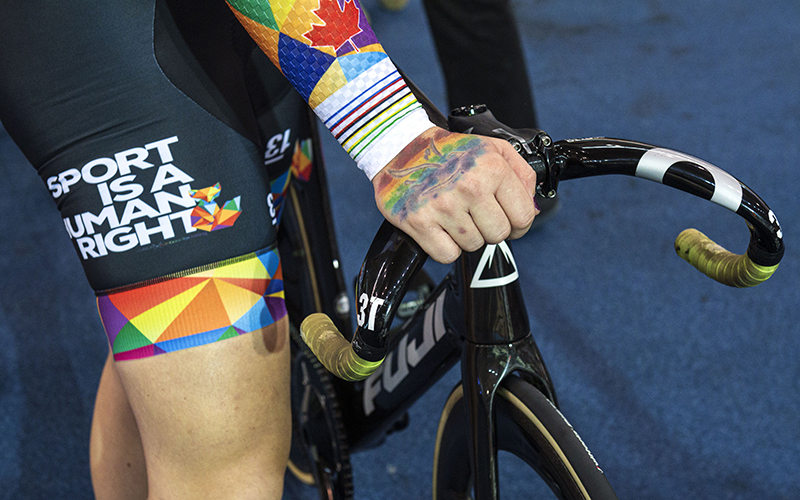
Under proposed House Bill 2706, interscholastic and intramural leagues in Arizona would have to designate sports as co-educational, male or female, if passed into law. (Photo by Oli Scarff/AFP via Getty Images)
PHOENIX – Transgender females would be restricted from competing in Arizona sports under a bill proposed by Rep. Nancy Barto, R-Phoenix. The Save Women’s Sports Act would require interscholastic and intramural leagues to classify separate co-ed, men’s and women’s sports.
If approved, House Bill 2706 would apply to all public and private interscholastic schools, including at the intramural, community college and university levels.
“Female student athletes should not be forced to compete in a sport against biological males, who possess inherent physiological advantages,” Barto said in a statement. “When this is allowed, it discourages female participation in athletics and, worse, it can result in women and girls being denied crucial educational and financial opportunities.”
Joe Paddock, assistant executive director for the Arizona Interscholastic Association, said the proposal could affect student athletes.
Each athlete would have to participate under his or her own biological sex or, as GLAAD refers to it their “designated gender at birth.”
“We do have a transgender policy in place,” Paddock said. “It was built by the sports medicine advisory committee and was comprised of physicians and doctors with a variety of expertise. It’s become a part of our policy and practice with our AIA member schools.”
Article 41.7 of the AIA bylaws states that “all students should have the opportunity to participate in Arizona Interscholastic Association (AIA) activities in a manner that is consistent with their gender identity, irrespective of the sex listed on a student’s eligibility for participation in interscholastic athletics or in a gender that does not match the sex at birth, via the following procedure below.”

Joe Paddock, assistant executive director for the Arizona Interscholastic Association, says the implications of the proposed law could be far-reaching. (Photo by Travis Whittaker/Cronkite News)
“It certainly will be a topic for our executive board at their next meeting in February for some discussion,” Paddock said. “I’m sure they are already aware that the bill is there and could be passed by the state Legislature.”
Harper Jean Tobin, director of policy for the National Center for Transgender Equality, said the proposal could affect many lives, from high school through the college level.
“The Arizona bill would force some students out of college sports and ban them from college sports,” Tobin said. “The NCAA already has a policy on this for a decade.”
The NCAA executive committee adopted an inclusion statement in April 2010.
If Barto’s bill passes, it would challenge policies created by larger associations than the AIA. The NCAA also would be affected and with its current policies in place would likely need to re-evaluate its own rules.
Twenty-two House Republicans have co-sponsored HB 2706. However, dozens of people have registered opposition to the proposal. As of Thursday, the bill had not been assigned to a committee, according to the Arizona Legislature’s website.
“My fear is that some student athletes around the state would be lost and hopeless,” Tobin said. “They could be kicked off of teams with their friends where they have built connections with their friends.”
The issue has been a hot topic of discussion since the Alliance Defending Freedom filed a federal discrimination complaint in June on behalf of three female track athletes in Connecticut who say transgender competitors may have cost them scholarship opportunities.
Matt Sharp, the senior council for the Scottsdale-based alliance, said HB 2706 would complement Title IX, the 1972 civil rights law banning discrimination based on sex in education programs that accept federal dollars.
“This bill is going to create a level playing field for all athletes, including female athletes,” Sharp said. “Biological males are being allowed to compete on female teams, and those female athletes are losing the opportunity to win and be at the top of the podium.
“This bill will preserve the level playing field that Title IX created that gives guys and girls an opportunity to win.
“Biological girls are going to have the same opportunities to compete on girls’ team and not worry about a biological male, no matter how he identifies, (taking) his spot on a girls team or on top of the podium.”
